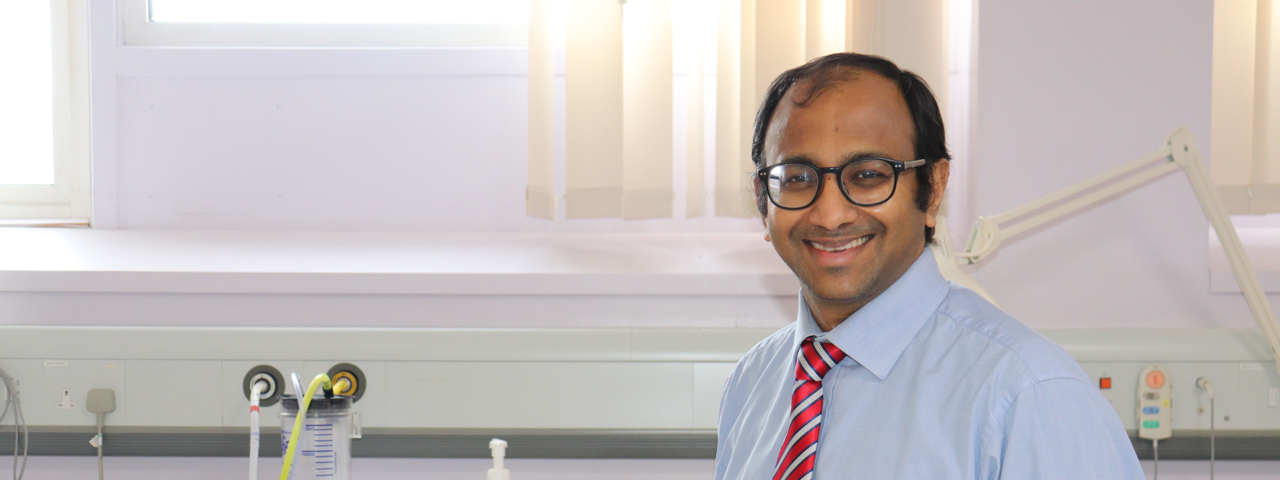Contact details
Address
Level 2, South Block
Royal Berkshire Hospital
Craven Road
Reading
Berkshire
RG1 5AN
Patient information leaflets

Pain Management
The Pain Medicine Unit provides a comprehensive pain management service for adults with acute and chronic (persistent) pain.
We treat a wide range of chronic pain conditions affecting all areas of the body, including:
- Neck pain and joint pain
- Neuropathic (nerve) pain, including post herpetic neuralgia (post shingles pain), post-surgical nerve damage pain
- Fibromyalgia
- Chronic regional pain syndrome
- Back pain
- Phantom pain
- Complex abdominal and pelvic pain
- Facial pain and headaches.
The team consists of specialist doctors, nurses, physiotherapists and psychologists. During your appointment you may be seen by one or more members of the team depending on your needs. The team offers advice and evidence based pain management strategies to support patients referred for specialist pain treatment from all specialities.
Pain management services include:
- Medication reviews
- Intervention treatments - e.g. injections or nerve blocks, where appropriate
- A multidisciplinary led pain management programme - digital/online and face to face options
- Physiotherapy assessments and support
- Psychological support with mood to enhance well being
- Self-management advice and guidance.
Acute pain is a normal physiological response to an unwanted and adverse chemical, mechanical or heat related trigger after surgery, trauma or any acute illness. Acute pain results from activation of the pain receptors (nociceptors) at the site of tissue damage. This type of pain is expected after surgery and anywhere where tissue damage occurs or inflammatory processes happen. Acute pain is typically self-limited and resolves over days to weeks, but it can persist for three months or longer, as healing occurs.
Pain is considered chronic when it has persisted beyond three months since onset. Often we expect acute pain to resolve by this time, but the mechanisms for acute pain do not switch off for many reasons.
In 2020 the international association for the study of pain revised the definition of pain. They defined pain as "An unpleasant sensory and emotional experience associated with, or resembling that associated with, actual or potential tissue damage."
Types of chronic pain include; neuropathic pain - pain caused by damage to the nerves, and nociplastic pain - pain that arises from altered nociception despite no clear evidence of actual or threatened tissue damage or evidence for disease or lesion of the somatosensory system causing the pain.
Chronic pain can feel like a lonely experience, but in fact it affects between 18-53% of the UK population. Despite the numbers, many people suffer needlessly, and could find relief through modern pain management treatments and a holistic approach that considers mind and body alike.
This approach to treating the whole person is vital, as persistent pain has a profound impact on both physical and mental wellbeing, and on your near and dear ones.
People with chronic pain often find themselves referred from one specialist doctor to another for a number of years without a proper diagnosis, suitable treatment or explanation.
If this sounds like you - or one of your patients - the pain management team can help. We start with a thorough and comprehensive evaluation to determine the cause of the pain and its effect on everyday life. The next step is to agree a treatment plan, so there are defined goals and everyone knows what to expect along the way. In line with best practice, we adopt an evidence based, multidisciplinary approach to managing and treating various pain conditions.
This may include a judicious combination of medication, injection therapy, exercise and psychological support where necessary. We strongly believe that knowledge helps people manage their pain better. Our goal is to put our patients in the driver's seat, allowing them to manage the pain and return to an active and enjoyable life.
